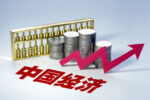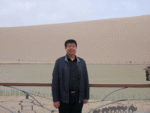- Resilient Nation Rising: Ghana news reflects bold economic reforms attracting global partners and fueling a new era of sustainable growth.
- Economic Diversification and Growth
- Investing in Agriculture for Food Security
- The Rise of Ghana’s Tech Ecosystem
- Attracting Foreign Investment
- Infrastructure Development: A Key Priority
- The Role of Regional Trade Agreements
- Sustainable Development Goals
- Environmental Sustainability and Climate Change
- Social Inclusion and Reducing Inequality
Resilient Nation Rising: Ghana news reflects bold economic reforms attracting global partners and fueling a new era of sustainable growth.
Ghana is experiencing a period of dynamic transformation, fueled by ambitious economic reforms and a growing reputation as a stable and attractive destination for foreign investment. Recent indicators demonstrate a strengthening economy, with a focus on diversification and sustainable development. The increasing interest from global partners reflects a confidence in Ghana’s long-term potential, evidenced by significant investments in key sectors. This positive trajectory is being closely followed through ghana news outlets both domestically and internationally, signalling a new era of prosperity and opportunity for the nation.
Economic Diversification and Growth
Ghana’s economy has historically been reliant on commodities such as cocoa, gold, and oil. Recognizing the vulnerabilities of this dependency, the government has actively pursued a strategy of economic diversification. This includes investing heavily in sectors like agriculture, manufacturing, and technology. Initiatives to promote entrepreneurship and small businesses are also central to this plan, aiming to create jobs and foster innovation. The resilience of the economy is documented across numerous sources, including financial reports and governmental statements.
| Sector | Growth Rate (2023) | Contribution to GDP |
|---|---|---|
| Agriculture | 4.8% | 20.3% |
| Industry | 9.2% | 32.1% |
| Services | 6.1% | 47.6% |
Investing in Agriculture for Food Security
A critical component of Ghana’s diversification strategy is a renewed focus on agricultural productivity. This involves providing farmers with access to improved seeds, fertilizers, and irrigation systems. Additionally, initiatives are underway to streamline agricultural value chains, reducing post-harvest losses and connecting farmers directly to markets. These efforts not only aim to enhance food security but also to generate higher incomes for rural communities. Constant updates on these developments are regularly circulated via news platforms and governmental reports.
The government is also promoting climate-smart agricultural practices, recognizing the impacts of climate change on agricultural yields. This includes encouraging the adoption of drought-resistant crops and water conservation techniques. Investment in agricultural research and development is also a priority, aimed at developing innovative solutions to meet the challenges facing the sector. The goal is to achieve self-sufficiency in key agricultural commodities and to position Ghana as a major agricultural exporter within the region.
The Rise of Ghana’s Tech Ecosystem
Ghana is rapidly emerging as a hub for technology and innovation in West Africa. A thriving startup scene, coupled with increasing access to internet connectivity and affordable technology, is driving this growth. Government support for the tech sector includes initiatives to provide funding, mentorship, and infrastructure to startups. Digital transformation is a key priority, with efforts underway to leverage technology to improve public service delivery and promote economic inclusion. The country is attracting significant venture capital investment, signaling a growing confidence in its tech potential.
Furthermore, there’s a growing focus on developing a skilled workforce capable of meeting the demands of the digital economy. This includes investing in STEM education and providing training programs to upskill existing workers. Ghana’s young and entrepreneurial population is also a significant asset, driving innovation and pushing the boundaries of what’s possible within the tech landscape. The progress is regular reported across ghana news sources dedicated to business and technology.
Attracting Foreign Investment
Ghana is actively courting foreign investment, promoting itself as a stable and attractive destination for businesses. The government has implemented policies to streamline the investment process, reduce bureaucratic hurdles, and create a more favorable business environment. Strategic initiatives are focused on sectors offering high growth potential, such as renewable energy, infrastructure, and manufacturing. Increased foreign direct investment (FDI) is crucial to supporting Ghana’s economic development goals.
- Political stability and a democratic framework
- A relatively stable macroeconomic environment
- A strategically located port offering access to regional markets
- A skilled and educated workforce
- Government incentives for foreign investors
Infrastructure Development: A Key Priority
Significant investment is being directed toward improving Ghana’s infrastructure, including roads, railways, ports, and energy. These improvements are essential to facilitating trade, reducing transportation costs, and creating a more competitive business environment. The government is prioritizing projects that will connect rural areas to markets and improve access to basic services. Public-private partnerships (PPPs) are being utilized to leverage private sector expertise and funding for infrastructure development. This focus on infrastructure is vital for unlocking Ghana’s economic potential.
Particular attention is being given to the development of renewable energy infrastructure, including solar and wind power plants. This is part of a broader effort to reduce Ghana’s reliance on fossil fuels and to transition to a more sustainable energy system. Modernizing the port infrastructure is also a top priority, as it is a critical gateway for trade and investment. These developments have become central topics covered by many media outlets chasing ghana news.
The Role of Regional Trade Agreements
Ghana plays a key role in regional trade through its membership in organizations like the Economic Community of West African States (ECOWAS). These agreements aim to promote trade and economic cooperation among West African nations, creating a larger and more integrated market. Ghana is also a strong advocate for the African Continental Free Trade Area (AfCFTA), which has the potential to significantly boost intra-African trade. The AfCFTA is expected to create a single market for goods and services across the continent, with a combined GDP of over $3 trillion.
Successfully implementing these agreements requires addressing a number of challenges, including harmonizing trade regulations, improving infrastructure, and resolving trade disputes. However, the potential benefits are substantial, offering opportunities for Ghana to expand its exports, attract investment, and create jobs. Continuous assessment of the agreements is happening around the clock to facilitate trade, promoting the country within ghana news articles.
Sustainable Development Goals
Ghana is committed to achieving the United Nations Sustainable Development Goals (SDGs) by 2030. These goals address a wide range of social, economic, and environmental challenges, including poverty, hunger, health, education, and climate change. The government has integrated the SDGs into its national development plans and is actively working to mobilize resources to achieve these ambitious targets. Progress towards the SDGs is regularly monitored and reported on.
- Eradicate poverty in all its forms
- End hunger, achieve food security and improved nutrition
- Ensure healthy lives and promote well-being for all
- Ensure inclusive and equitable quality education and promote lifelong learning opportunities for all
- Achieve gender equality and empower all women and girls
Environmental Sustainability and Climate Change
Recognizing the impacts of climate change, Ghana is committed to environmental sustainability. Efforts are underway to protect natural resources, promote reforestation, and reduce greenhouse gas emissions. The government is investing in renewable energy sources and promoting sustainable agricultural practices. Climate resilience is a key priority, with initiatives aimed at reducing the vulnerability of communities to the impacts of climate change. These issues are heavily reported on in ghana news, aligning with both regional and international concerns.
Ghana is also actively participating in international efforts to address climate change, including the Paris Agreement. The country is committed to reducing its carbon emissions under the Nationally Determined Contributions (NDCs). This requires a concerted effort across all sectors of the economy to transition to a low-carbon development pathway. Prioritizing forest management and biodiversity conservation are also vital components of Ghana’s environmental sustainability strategy.
Social Inclusion and Reducing Inequality
Addressing social inclusion and reducing inequality are key priorities for the government. Initiatives are underway to improve access to education, healthcare, and other essential services for all Ghanaians, particularly vulnerable groups. Social protection programs are being expanded to provide a safety net for the poor and marginalized. Promoting equal opportunities for women and girls is also a central focus. This ongoing work is vital for creating a more equitable and just society.
The government is also promoting good governance and rule of law, recognizing these as essential foundations for sustainable development. Strengthening institutions, tackling corruption, and promoting transparency are all key priorities. Creating a more level playing field for all citizens will contribute to a more inclusive and prosperous Ghana. Ongoing updates regarding policies implemented are regularly reviewed by several ghana news sources.
| SDG | Key Initiatives in Ghana | Progress (2023) |
|---|---|---|
| SDG 1 (No Poverty) | LEAP Program, Rural Development Programs | Poverty rate reduced by 2.5% |
| SDG 4 (Quality Education) | Free SHS Policy, Skills Development Programs | School enrollment increased by 15% |
| SDG 5 (Gender Equality) | Empowerment Programs, Legal Reforms | Female representation in Parliament increased by 5% |
Ghana’s journey towards economic and social transformation is one marked by resilience, innovation, and a firm commitment to sustainable development. The ongoing reforms, coupled with increasing foreign investment and a focus on regional integration, position the nation for continued growth and prosperity. This positive momentum is regularly highlighted in reports and articles offering ghana news coverage, signaling a promising future for the country and its citizens.










